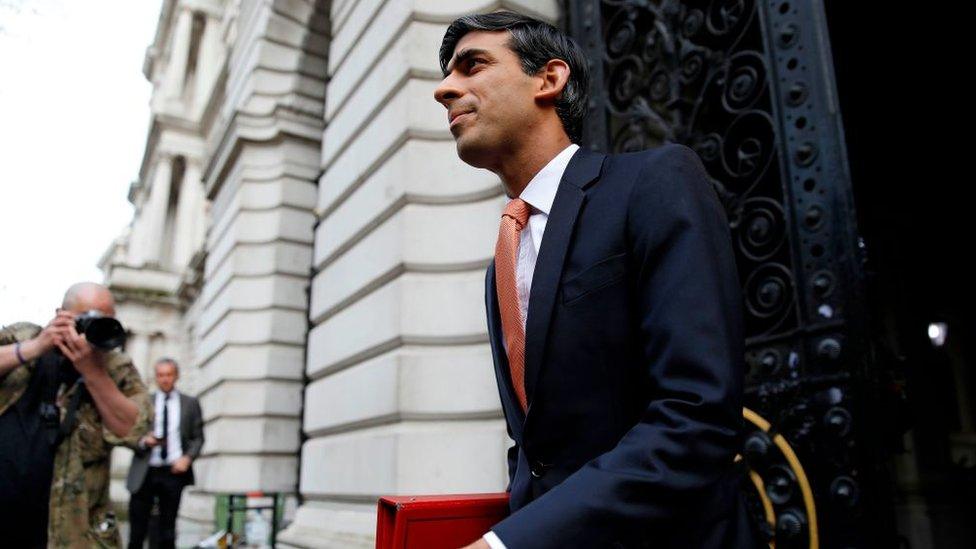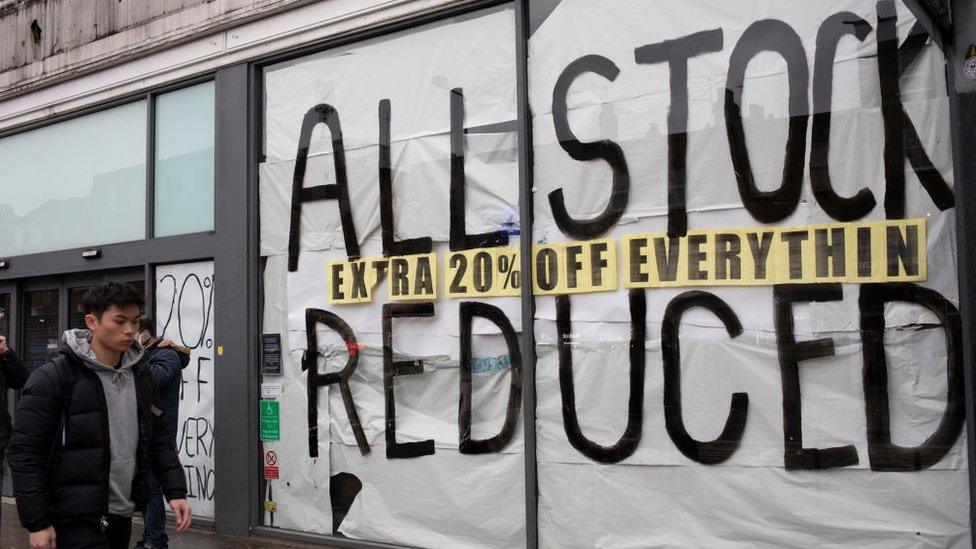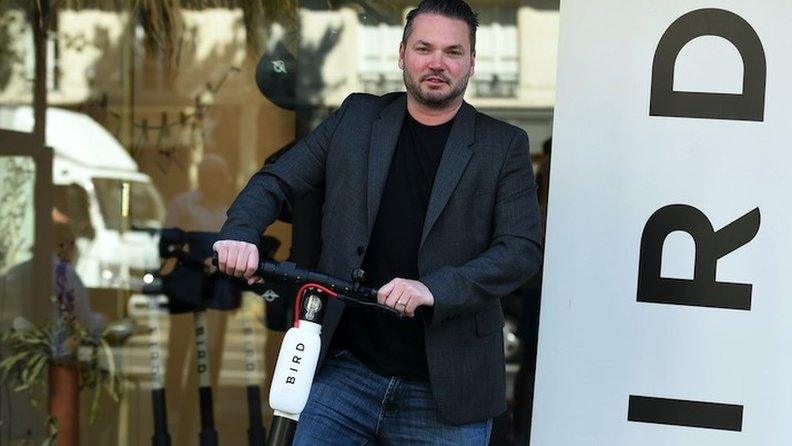Coronavirus: Government unveils £1.3bn scheme to help start-ups
- Published

The government has announced a £1.25bn package to support innovative new companies that are not eligible for existing coronavirus rescue schemes.
It will match up to £250m of private investment and add £550m to an existing loan and grant scheme for smaller firms that focus on research and development.
Adding it up, that totals £800m of new money to support fledgling firms.
Chancellor Rishi Sunak said start-ups would help power the UK's growth after the coronavirus crisis.

"This new, world-leading fund will mean they can access the capital they need at this difficult time, ensuring dynamic, fast-growing firms across all sectors will be able to continue to create new ideas and spread prosperity," he said.
Newly-founded companies often lose money in their early years, which makes them ineligible for the government's emergency loan scheme. But it also makes them a risky investment.
It took some of the world's most well known and valuable firms - including Amazon and Tesla - years to turn a profit. Uber is yet to make any profit at all.
However, the government is keen to ensure that the economic impact of the coronovirus does not kill off some of the UK's fastest growing and most innovative companies.
What's the catch?
Nevertheless, the rescue package comes with strings attached.
To qualify to receive the government money, a company must have raised £250,000 privately in the last five years.
On top of that, any money put in by the government must be matched by private investors. And, if the money is not repaid, the government will take an ownership stake in the company.
The package has been broadly welcomed by the entrepreneur community but some have warned that - as with other coronavirus support mechanisms - complexity is the enemy of speed. And it's speed that is all important.

A SIMPLE GUIDE: How do I protect myself?
AVOIDING CONTACT: The rules on self-isolation and exercise
WILL I GET PAID IF I CAN'T WORK? Rules on sick pay and wages
LOOK-UP TOOL: Check cases in your area

As of last week, just over £1bn in government-backed loans had been approved out of a total support package of £330bn.
Under the scheme, the government guarantees 80% of each of the loans, which are issued by banks. But many firms have complained that those banks have been slow to lend cash because they would be left to cover 20% of losses on loans that cannot be repaid.
That has put pressure on the Treasury to increase the government guarantee to 100% to accelerate the approval process.
Treasury officials have raised the spectre of widespread abuse of the programme if the government were to fully guarantee all loans to coronavirus-affected companies. But the Bank of England Governor, Andrew Bailey, has said that increasing the government guarantee would make the process "less complicated".
And a former senior Treasury official, who did not want to be named, warned that Mr Sunak's department was trying to be "too clever by half", a tacit admission - perhaps - that in a time of economic crisis, there is no such thing as a blunt instrument.
Meanwhile, the head of the International Monetary Fund, Kristilan Georgieva, told the BBC that governments around the world should pay out money as fast as possible but, she said, "keep the receipts".
The emergency is now. The reckoning can come later.
- Published1 April 2020

- Published30 March 2020
